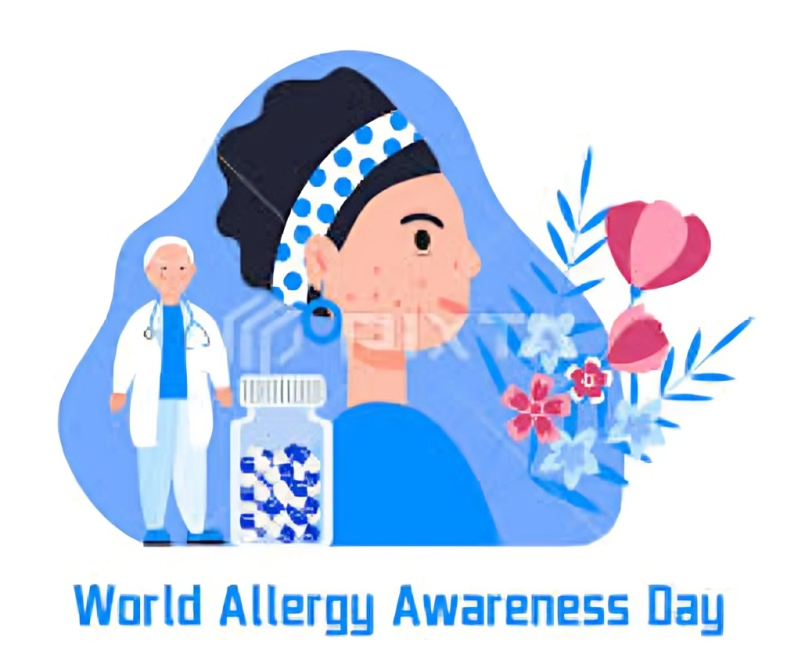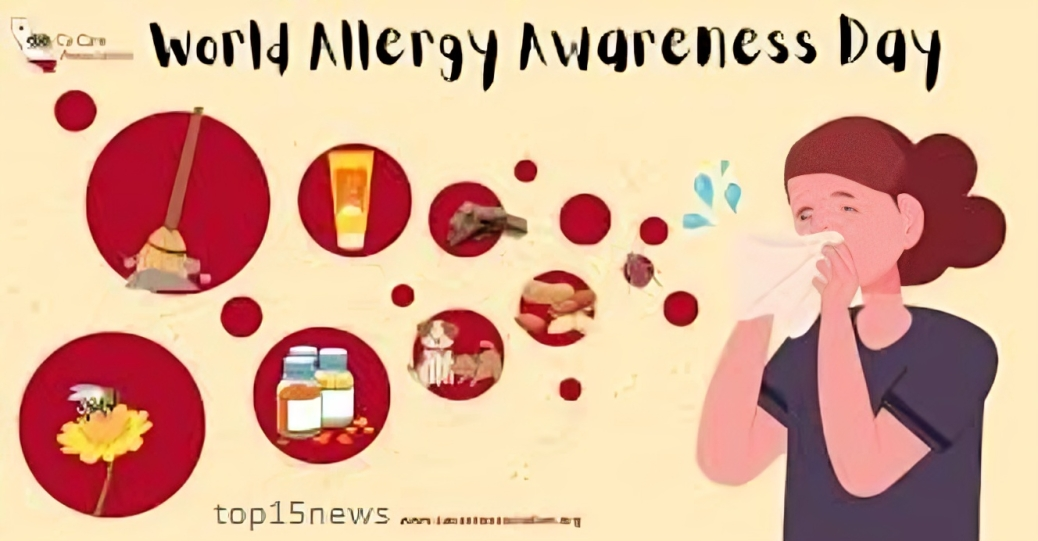World Allergy Day is observed every year on July 8th as a joint initiative by the World Health Organization (WHO) and the World Allergy Organization (WAO). The goal is to increase public awareness about allergies, their symptoms, prevention, and available treatment options. As allergic diseases continue to affect millions globally, World Allergy Day is the right occasion to bring attention to this invisible but impactful condition.
World Allergy Day: Why It Matters
On World Allergy Day, organizations and medical professionals aim to inform the public about the most common allergies, particularly seasonal allergies caused by pollen. Dr. Ana Kozlovska, a clinical immunologist and allergist, shares that pollen from trees, grasses, and weeds are major triggers during spring and summer. These allergens lead to symptoms that can significantly affect quality of life, including:
- Sneezing
- Nasal congestion
- Itchy nose and eyes
- Coughing
- Watery eyes
- Sniffling
Even though these symptoms are not life-threatening, they hinder work, sleep, education, and social activities.
World Allergy Day: How Pollen Impacts Daily Life
As emphasized on World Allergy Day, pollen allergies can make it difficult for both children and adults to enjoy outdoor life. According to Dr. Kozlovska, “Warm weather becomes unbearable due to constant sneezing, itching, and eye irritation. Relief only comes when it rains and pollen settles.”
This makes summer, the season typically associated with joy and sunshine, miserable for many allergy sufferers.
World Allergy Day: Treatment Options and Prevention
On World Allergy Day, experts recommend a mix of preventive and symptomatic treatment strategies:
Antihistamines
Antihistamines are the first line of defense against allergy symptoms. They work by blocking histamine, the chemical responsible for sneezing and itching. While selecting antihistamines:

- Choose non-drowsy options
- Ensure they don’t interfere with daily functioning
- Take them consistently during peak pollen seasons
Intranasal Corticosteroids
Topical corticosteroids help reduce inflammation in the nasal passages and eyes. These sprays are effective when used regularly and relieve nasal blockage, itching, and watery eyes.
World Allergy Day: Pollen Hygiene Tips
Another key recommendation shared during World Allergy Day is managing how pollen enters your living environment:
- Wash hands, face, and hair after returning from outdoors
- Change clothes before entering the bedroom
- Keep windows closed during high pollen times
- Use air purifiers with HEPA filters indoors
These small changes can significantly reduce indoor allergen exposure.
World Allergy Day: What If Medicines Aren’t Enough?
Sometimes, despite all efforts, symptoms persist. In such cases, World Allergy Day promotes awareness of allergen-specific immunotherapy (ASIT) — a long-term solution.
What is ASIT?
- A treatment that trains your immune system to tolerate allergens
- Given in small, increasing doses over time
- Reduces need for daily medication
- Can be started in children as young as 6 years old
Dr. Kozlovska explains, “ASIT helps the body build resistance to allergens. When the next pollen season comes, reactions are milder or sometimes even absent.”
World Allergy Day: It’s a Family Awareness Issue
Allergies can run in families. That’s why World Allergy Day is also a reminder for parents to observe symptoms in children and seek medical consultation early. Delayed diagnosis can lead to complications like asthma or chronic sinusitis.
World Allergy Day: How You Can Participate
Whether you or a family member suffer from seasonal allergies, World Allergy Day is an opportunity to:
- Get tested for common allergens
- Learn about new treatments
- Educate others in your community
- Consult an allergist if symptoms are frequent or intense

World Allergy Day: Conclusion
On this World Allergy Day, take charge of your health. Seasonal allergies may not be life-threatening, but they deeply affect day-to-day life. With the right care — from antihistamines and corticosteroids to immunotherapy and hygiene measures — relief is within reach. Speak to a qualified allergist, and stay informed about prevention and treatment strategies.
Today Weather Update: Rain in UP-Bihar, Humidity in Delhi
